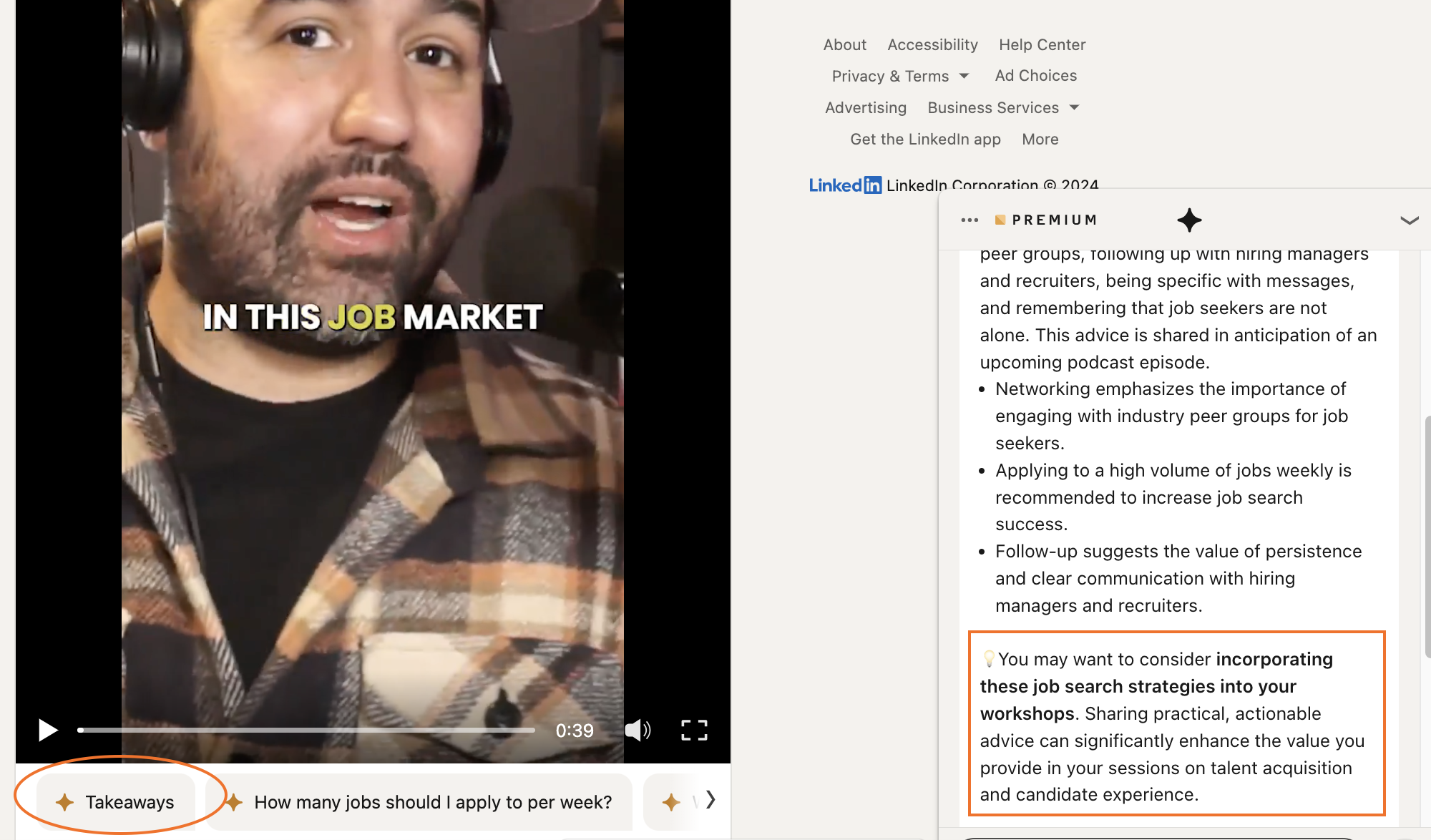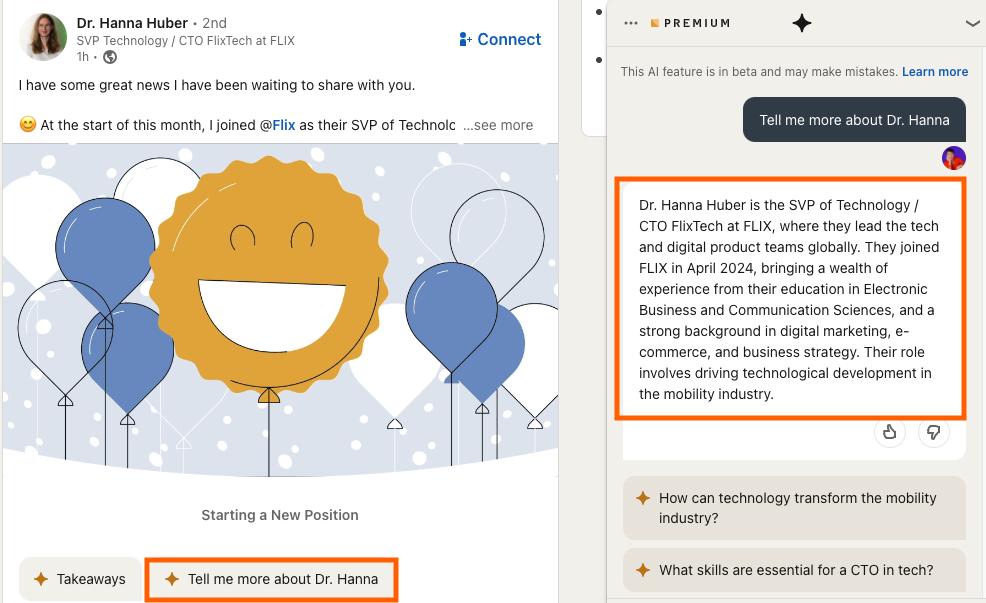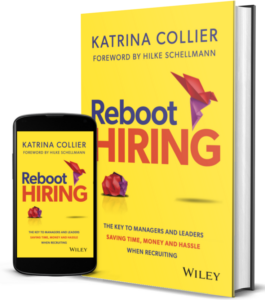Pondering AI
I’m back!! I hope you didn’t miss me too much while I was furiously typing out my new book, Reboot Hiring: The Key To Managers and Leaders Saving Time, Money and Hassle When Recruiting. I hit the deadline, so it will be available via Wiley on August 1st! 🥳
It is as gritty as The Robot-Proof Recruiter and includes 60 industry voices and many examples.
It is the book you have been wanting to give your managers and leaders for years.
While writing, one thing became evident: though managers and leaders rank retention and recruitment high on their list of issues, they are already looking for ways to withdraw TA from the equation. I found examples of companies removing recruiters – not brilliantly, nor in a way job seekers like. But it has started.
Will you be in the 80% or the 20%?
Toby Culshaw said to me recently, ‘Take the 80:20 rule. 80% of people are surviving day-to-day; 20% are looking to change and transform. Use the 80:20 rule on the 20%; there are 16% who don’t know how to make the change or are scared to speak up. So, Katrina, you’re in the 4% who actually do something about it!’ 🫠
No wonder I’m tired! 😆
We both know that recruitment is not easy because we are dealing with and matching humans, but as long as talent acquisition is perceived as a cost centre, the longer this will continue. (I wrote about this back in Oct 2022)
When I look through LinkedIn posts, I see a lot of emphasis on using AI to create efficiencies but very little on how to increase your value to the business or ensure that AI is being used to cut the right corners. I shudder when I see evidence that it is being used to screen, for example.
It is essential to understand AI and where it can aid the recruitment process, but don’t let it take away your ability to think or your uniquely human skills.
If I wanted to show my company why TA cannot be done solely by AI, I would redirect some of my learning time to upping my human skills: things like empathy and EQ, innovation, creativity, collaboration, adaptability and flexibility, cultural intelligence and diversity, communication skills, and critical thinking.
Pondering AI
I’m back!! I hope you didn’t miss me too much while I was furiously typing out my new book, Reboot Hiring: The Key To Managers and Leaders Saving Time, Money and Hassle When Recruiting. I hit the deadline, so it will be available via Wiley on August 1st! 🥳
It is as gritty as The Robot-Proof Recruiter and includes 60 industry voices and many examples.
It is the book you have been wanting to give your managers and leaders for years.
While writing, one thing became evident: though managers and leaders rank retention and recruitment high on their list of issues, they are already looking for ways to withdraw TA from the equation. I found examples of companies removing recruiters – not brilliantly, nor in a way job seekers like. But it has started.
Will you be in the 80% or the 20%?
Toby Culshawsaid to me recently, ‘Take the 80:20 rule. 80% of people are surviving day-to-day; 20% are looking to change and transform. Use the 80:20 rule on the 20%; there are 16% who don’t know how to make the change or are scared to speak up. So, Katrina, you’re in the 4% who actually do something about it!’ 🫠
No wonder I’m tired! 😆
We both know that recruitment is not easy because we are dealing with and matching humans, but as long as talent acquisition is perceived as a cost centre, the longer this will continue. (I wrote about this back in Oct 2022)
When I look through LinkedIn posts, I see a lot of emphasis on using AI to create efficiencies but very little on how to increase your value to the business or ensure that AI is being used to cut the right corners. I shudder when I see evidence that it is being used to screen, for example.
It is essential to understand AI and where it can aid the recruitment process, but don’t let it take away your ability to think or your uniquely human skills.
If I wanted to show my company why TA cannot be done solely by AI, I would redirect some of my learning time to upping my human skills: things like empathy and EQ, innovation, creativity, collaboration, adaptability and flexibility, cultural intelligence and diversity, communication skills, and critical thinking.
On May 1st, I’ve been invited to talk about this and more at this online event:
Don’t lose your ability to think
Sometimes, I feel like a fish swimming upstream because I am either the only one who sees things the way I do or the only one who vocalises them. 4%.
Consider for a moment the orange LinkedIn Community Voice Badges—the ones you can gain for 60 days by contributing to AI collaborative articles.
LinkedIn was clever. By gamifying it, they gained people’s intellectual property and kept LinkedIn on Google’s home page without having to retain all of the content team (not fact-checked, but I haven’t seen them in my feed since the last round of layoffs 🤷).
But I also know a lot of people who gamed the collaborative articles back by adding unedited comments generated by ChatGPT. I wonder if LinkedIn considered the possibility of garbage-in, creating more noise for users to wade through. Then, I began wondering what LinkedIn planned to do with all of our intellectual property.
Could it be this? 👇🏻 Is this where it’s heading? 😬 As a Premium user, have you seen this?
Here is Joel Lalgee sharing a valuable and entertaining video about job searching, and LinkedIn’s AI has summarised it for me – critically drawing my attention away from Joel’s value to a pop-up box.
The AI suggests I incorporate these job search strategies into my workshops for recruiters and talent acquisition. 🤨 Which is irrelevant and annoying.
You may be thinking, ‘Who cares, Katrina?’ but consider this for a moment. And yes, this will sound melodramatic, but still, consider it.
❗️Relying on that box, blindly believing its content, is a way to not have to think.
☣️ The distraction will cost post creators business, opportunities, attention etc.
If these kinds of features start appearing more and more, what happens to our ability to think and not blindly believe the info in the pop-up box? Think how easy it is to doomscroll; these things become addictive.
For years, LinkedIn has encouraged us to post useful and original content. Is it right that they now distract people away from our posts? And for what purpose?
Here’s another example 👇🏻
Again, you may think, ‘So what?’ but now I don’t need to click ‘see more’ potentially helping the reach of her post, nor do I need to look at the profile, which reduces networking potential. And isn’t that what LinkedIn is for?
But my biggest concern is that what’s written in that box represents Dr. Huber—accurately or inaccurately. It also lacks any kind of personality, which is visible on her profile.
I would prefer people to read what I wrote about myself because nobody knows my experience better than I do. Then, they can engage their brains to come to their own conclusions instead of relying on an AI-generated summary, which may or may not be factual.
80 or 20?
If you read this far, you must have found some merit in my alternative point of view. I think you’re in the 20% who realise that if we continue accepting the status quo without taking pause, we could end up in deep 💩.
Query everything. Don’t give away your uniquely human skills blindly. In the coming years, it is going to be even harder to discern what is real from what is fake. The best recruiters and sourcers are super curious and seek to understand beyond the veneer.
Don’t be left behind because someone at LinkedIn decided there was value in a pop-up box doing your thinking for you.




